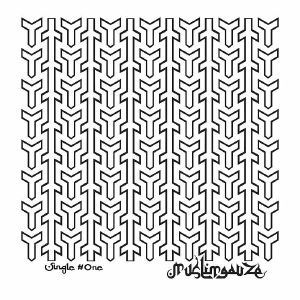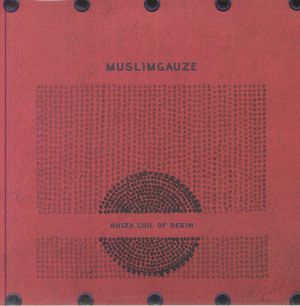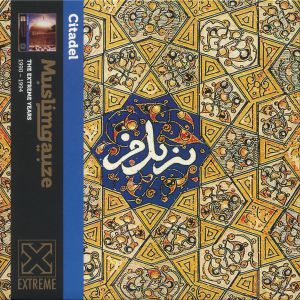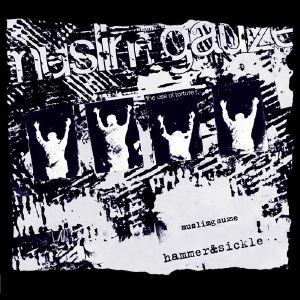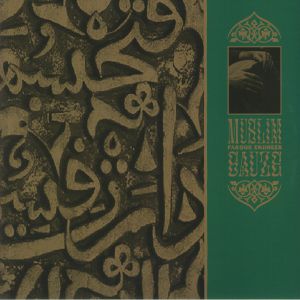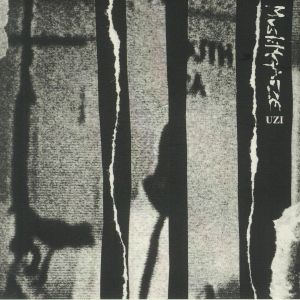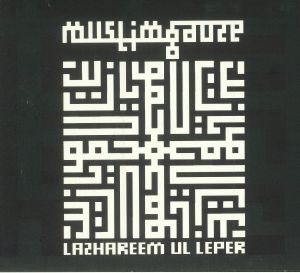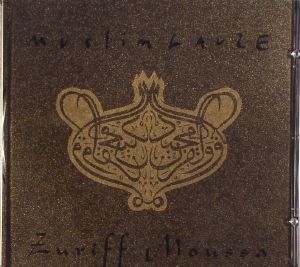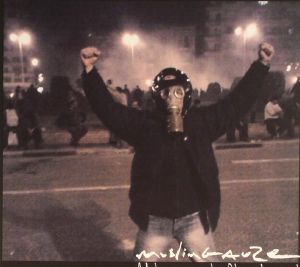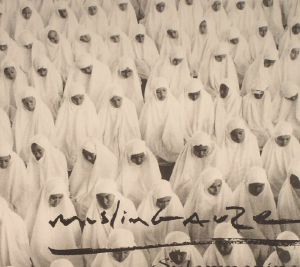Receive new release alerts for Muslimgauze
MUSLIMGAUZE レコード& CD
Browse the latest Vinyl & CD releases by MuslimgauzeSimilar artists:
1~15/15(ページ1/1)の商品
Single One (7" + MP3 download code limited to 300 copies)
Cat: MGARCHIVEVOL 70. Rel: 27 Jun 25
Experimental/Electronic
Review: Get ready for another round of Afro-Islamic breaks as sculpted by the genius recluse known as Muslimgauze (aka Bryn Jones), whose storied obsession with Middle Eastern atmospheres and culture writ large, set to contemporary dub and breaks technologies, could be said to have proven both the life and death of the man. On this set of formerly unheard singles, released through Jones' original label-network providers Staalplaat, we've two further Levantine levitations, heard in characteristic widescreen-but-weird surround sound, as 'Track 1' stumbles through tense oud areas and clattering tin barrel breaks, and 'Track 2' blurs hand-drummed darbuka with wheelup-rewind dancehall recalls.
… Read morePre-orders at Juno
This vinyl is available for pre-order at Juno, for shipping on the release date. You won’t be charged until the order is despatched.
We'll keep you informed of your order at every stage, and let you know if the release date changes.
If the price of the item drops before it's released, you will pay the lower price, but if it increases, you'll only pay the price you see today.
If you also include in-stock items on your order, they’ll be charged and shipped within 24 hours as usual.est. release 27 Jun 25 $20.58
(現時点でお支払いの必要はありません - 発売日にお支払いください)
Al Zulfiquar Shaheed (gatefold 2xLP in spot-varnished sleeve)
Cat: AKT 12LP. Rel: 06 Feb 25
Experimental/Electronic
Review: A serious showcase for Muslimgauze's mastery of hypnotic, Eastern-inspired soundscapes. Clocking in at over 75 minutes, the five tracks delve into a world of intricate rhythms, droning keyboards, and ethereal atmospheres. 'Sadhu' sets the tone with its hypnotic percussion and swirling melodies, while 'Shaheed' and 'Mosaic Palestine' build upon this foundation, their extended lengths allowing for deep immersion and sonic exploration. 'Ayodhya Skin & Stone', the album's centerpiece, is a sprawling epic that seamlessly blends traditional instrumentation with electronic textures, creating a mesmerizing tapestry of sound. 'Iraqi Opal' provides a contemplative conclusion, its delicate melodies and atmospheric textures leaving a lingering sense of wonder. A testament to Bryn Jones' ability to create immersive and transportive sonic experiences.
… Read more in stock $40.87
Review: The late great Muslimgauze was always way ahead of the curve with the music he made. Whenever you think you have a handle on it you will discover another mind-bending work. Al-Zulfiquar Shaheed is a 75-minute testament to that from 1994 that is a journey into hypnotic, Eastern-inspired soundscapes. Comprising five extended compositions, it showcases Bryn Jones' unparalleled ability to weave intricate textures of Arabic percussion, droning keyboards and evocative vocal samples. The album is both rhythmic and melodic and brilliantly immersive while being steeped in ethereal tones and cultural depth. Its detailed, flowing arrangements highlight Jones' genius for crafting mesmerising, long-form works that resonate deeply all these years on.
… Read more in stock $12.69
Rhiza Coil Of Resin (CD in hand-made sleeve limited to 200 copies)
Cat: SONG 28CD. Rel: 17 Dec 24
Experimental/Electronic
Review: Even by the standards of the late, great Bryn Jones AKA Muslimgauze - an artist whose enormous catalogue has only grown since his death in 1999 - Rhiza Coil of Resin is something of an obscurity - a set previously only available as part of a rare box set. It was reportedly recorded at some point following the release of Narcotic (1997) and explores many of the same sonic themes. Here available as a standalone CD for the first time, the five tracks variously touch on lo-fi, delay-laden drum & bass ('Deceive For Yourself'), redlined bass and mangled breakbeats (both takes on the suitably heavy 'Arab Quarter'), experimental electronic noise meets ambient acid ('Why Iraq') and deep, dubbed-out trip-hop ('Effendi') - all peppered with his usual Arabic spoken word samples, field recordings and found sounds.
… Read more in stock $15.50
Played by: Juno Recommends Leftfield
in stock $36.92
Review: The late great Muslimgauze is a cult figure when it comes to experimental electronic music. He made several revered records that have been reissued since his death and helped to reassert his status. Maroon is a work that like much of his output brings space, colour, depth, and illusion to sound. It is densely layered and textured and finds Bryn Jones, the Mancunian behind Muslimgauze, assaulting all the senses. From the rusty sounds and smeared voices of 'Thimble Cups Of Urdu' to the dense collage of drones, tin pot hits and obscured mutterings of 'Harem Of Dogs' this is a brilliantly idiosyncratic work.
… Read more in stock $31.29
Review: Early on in Muslimgauze's (Bryn Jones') career, the musician released two ultra-mysterious releases on the equally mysterious label Hessian, which some speculate might've been comprised entirely of Jones himself. Hammer & Sickle was one of these two early LPs from the faux Arabic auteur, and was notable for its distinct lack of any back cover artwork (who needs a visual stimulus when you've got such great music on board?). Though still indicative of Jones' work as Muslimgauze, superfans will note that this release sounds a little more formative than some of his later releases, owing to its lessened use of Middle Eastern instrumentation and sparser production in general. B-sider 'Fear Of Gadaffi' is the most intermittent in this regard, revelling more than anything in the simple effect of spring delay on sampled, freeform perc hits.
… Read more in stock $20.58
in stock $16.34
Review: The eternally mystical Muslimgauze was as experimental as they come. They turned out a wealth of now cult albums that still sound like very little else out there'd there has been a rather extensive reissue project in the world over the last few years. The next of their albums to get put put in remastered form across various formats is Khan Younis from back in 1993. All fused into the competing tracks that make it up are sounds from the worlds of experimental, ambient, acid house and dub to make for a truly unique listen.
… Read morePlayed by: Stunty
in stock $23.39
in stock $29.30
in stock $17.19
in stock $19.45
in stock $18.32
in stock $19.45
in stock $18.89
1~15/15(ページ1/1)の商品

 USD
USD





